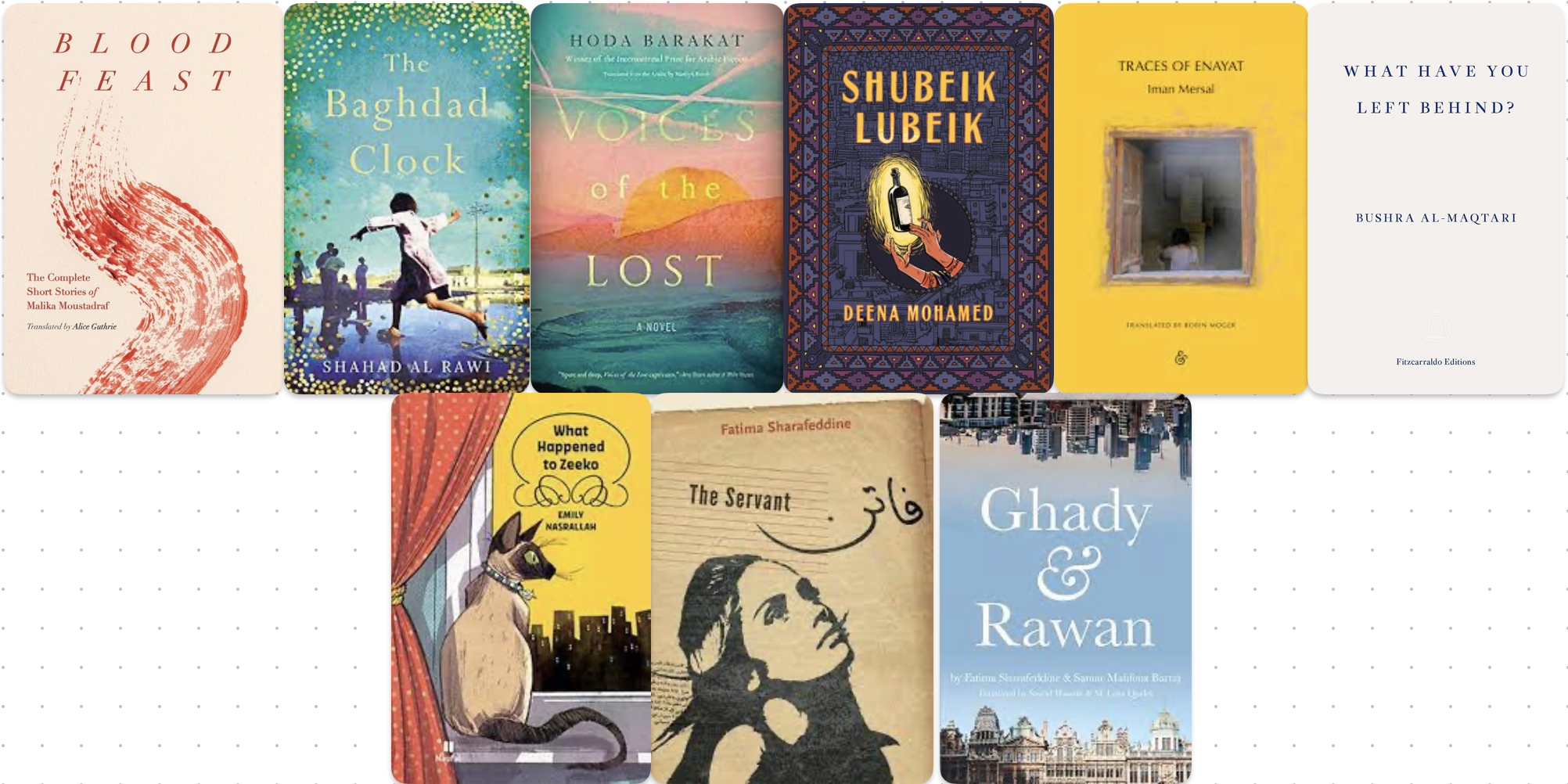-
Women in Translation Month TBR

August is Women in Translation Month! For a list of books translated from Arabic into English, check my post here. On this post, I’ll be sharing my personal TBR for this month’s challenge. I’ve tried to keep it to a manageable four as I won’t be reading Women in Translation books exclusively. Quick links Translations…
-
Women in Translation Month Arabic Recommendations

August in Women in Translation Month in the bookish world. Started in 2014 by Meytal Radzinski, the month is an opportunity to encourage readers around the world to read and celebrate women writers in translation. Of course, we should all be trying to read more women and more translations throughout the year. I’ve collected here…
-
الكل يقول أحبك
Back in February after the International Prize for Arabic Fiction (IPAF) announced its 2023 longlist, I had a grand plan of reading a chapter from every title available in the abjjad app. I read a first chapter from بيتنا الكبير by ربيعة ريحان, which I truly enjoyed. I then set to read a chapter from…
-
Never have I ever
During a recent Darija lesson, I learned the construction “ما عمّرني” meaning “I have never….” It uses the base word عمّر meaning to fill, with a suffix in agreement with the person (thus, for “I” (first person singular) the suffix is “ني”). Sentences are then constructed by adding the verb you have never done in…
-
Typical Greetings, as found in “Sarah entre France et Maroc”
A major part of speaking any language is knowing the greeting rituals. If you’re just a tourist, just the usual السلام عليكم\و عليكم السلام should be more than sufficient, with perhaps the occasional لا باس (literally “no problems” — it’s used a bit like ça va? in French) thrown in by people excited to hear…
-
سلوى و الزبير “Am I pretty without makeup?” “انا زْوْينَة بْلَا المَكِيّاج؟”
As I wrote yesterday, I really enjoy the series, Salwa w Zoubir (سلوى و الزبير), produced by 2M. Today, I have taken a short clip from the first episode, added English subtitles and written out the Arabic below. The English translation is not word-to-word. Give it a listen and see what you can understand! سلوى…
-
Even more Darija resources!
Since I last wrote about what Darija resources I was using, I have added quiiiite a number of new books and sites to my rotation. (You’d think I’d be much further along then, wouldn’t you? But, of course, possessing things is not the same as making use of them.) In any case, here’s a rundown…
-
How I’m Learning Darija
Though I am very lucky to have my own personal Moroccan Arabic speaker living with me; it’s not fair to him to request he listen to and correct my babbling in Darija 24/7. As such, I am using books and CDs to introduce myself to the language in a gradual manner. I then use what…